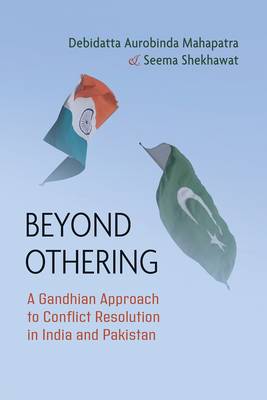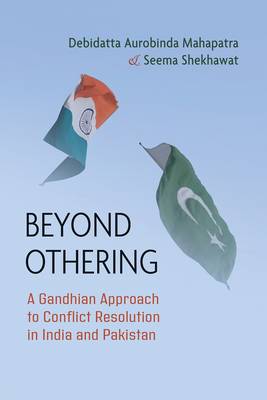
- Afhalen na 1 uur in een winkel met voorraad
- Gratis thuislevering in België vanaf € 30
- Ruim aanbod met 7 miljoen producten
- Afhalen na 1 uur in een winkel met voorraad
- Gratis thuislevering in België vanaf € 30
- Ruim aanbod met 7 miljoen producten
Beyond Othering
A Gandhian Approach to Conflict Resolution in India and Pakistan
Debidatta Aurobinda Mahapatra, Seema ShekhawatOmschrijving
Mohandas K. Gandhi opposed the 1947 partition of British India that created two independent states of India and Pakistan, as he believed that partition politics, rooted in the psychology of othering, would turn South Asia into a near permanent conflict zone. His apprehension was not without basis. The psychology of othering that engendered partition continues to manifest itself in multiple ways, including, but not limited to, interstate wars and communal violence. It permeates not only politics at a higher level but also everyday life. In exploring partition and post-partition developments in South Asia in this interdisciplinary work, Mahapatra and Shekhawat argue for a Gandhian approach to transform the conflict landscape in South Asia.
The authors illustrate how Gandhian principles of multicultural belonging and pluralism are key to resolving conflicts not just in South Asia but across the world. Beyond Othering is a timely and relevant contribution to the discourse on conflict resolution, making it essential reading for scholars, policymakers, and practitioners interested in peacebuilding in the region and beyond.Specificaties
Betrokkenen
- Auteur(s):
- Uitgeverij:
Inhoud
- Aantal bladzijden:
- 248
- Taal:
- Engels
- Reeks:
Eigenschappen
- Productcode (EAN):
- 9780815638100
- Verschijningsdatum:
- 15/09/2023
- Uitvoering:
- Paperback
- Formaat:
- Trade paperback (VS)
- Afmetingen:
- 152 mm x 229 mm
- Gewicht:
- 340 g

Alleen bij Standaard Boekhandel
Beoordelingen
We publiceren alleen reviews die voldoen aan de voorwaarden voor reviews. Bekijk onze voorwaarden voor reviews.











